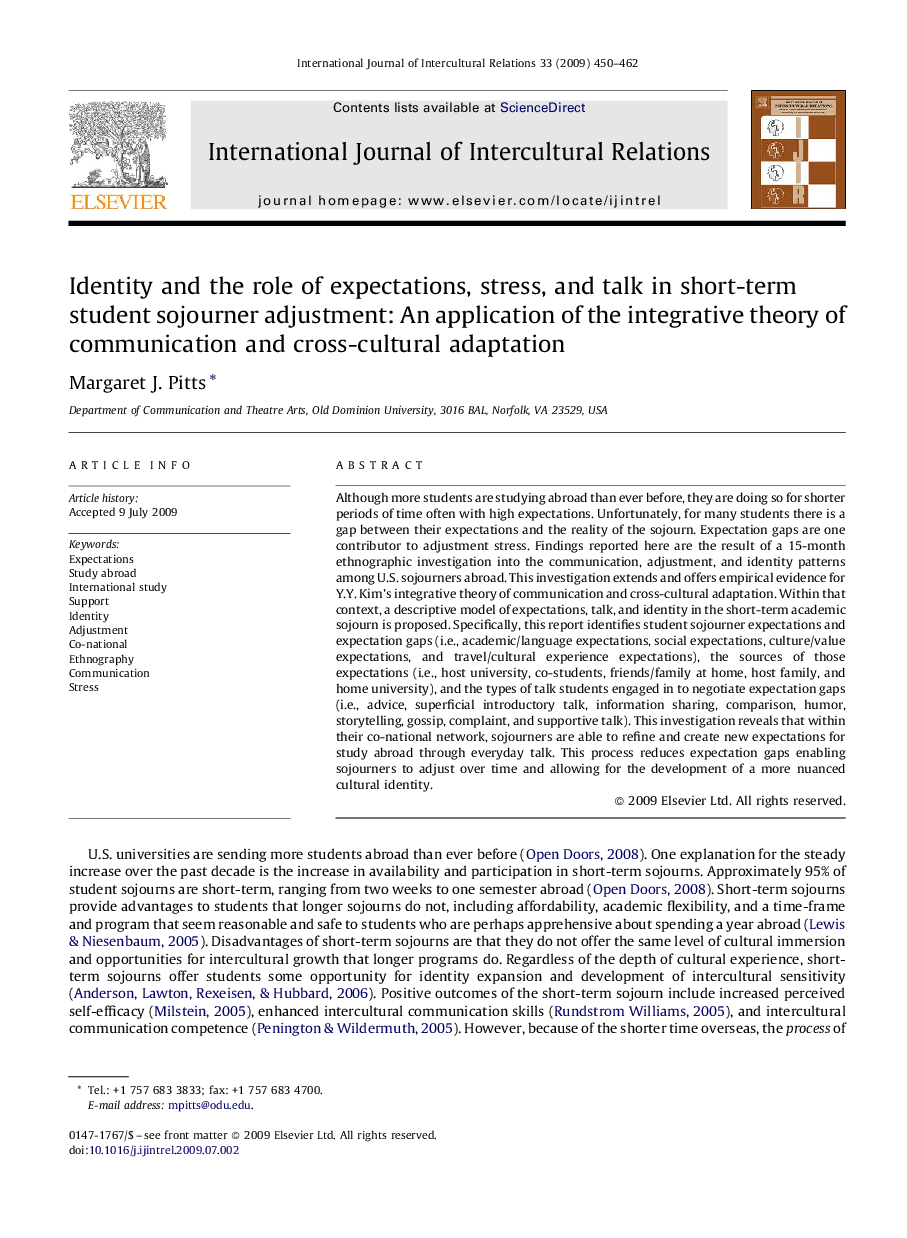| Article ID | Journal | Published Year | Pages | File Type |
|---|---|---|---|---|
| 947397 | International Journal of Intercultural Relations | 2009 | 13 Pages |
Although more students are studying abroad than ever before, they are doing so for shorter periods of time often with high expectations. Unfortunately, for many students there is a gap between their expectations and the reality of the sojourn. Expectation gaps are one contributor to adjustment stress. Findings reported here are the result of a 15-month ethnographic investigation into the communication, adjustment, and identity patterns among U.S. sojourners abroad. This investigation extends and offers empirical evidence for Y.Y. Kim's integrative theory of communication and cross-cultural adaptation. Within that context, a descriptive model of expectations, talk, and identity in the short-term academic sojourn is proposed. Specifically, this report identifies student sojourner expectations and expectation gaps (i.e., academic/language expectations, social expectations, culture/value expectations, and travel/cultural experience expectations), the sources of those expectations (i.e., host university, co-students, friends/family at home, host family, and home university), and the types of talk students engaged in to negotiate expectation gaps (i.e., advice, superficial introductory talk, information sharing, comparison, humor, storytelling, gossip, complaint, and supportive talk). This investigation reveals that within their co-national network, sojourners are able to refine and create new expectations for study abroad through everyday talk. This process reduces expectation gaps enabling sojourners to adjust over time and allowing for the development of a more nuanced cultural identity.
